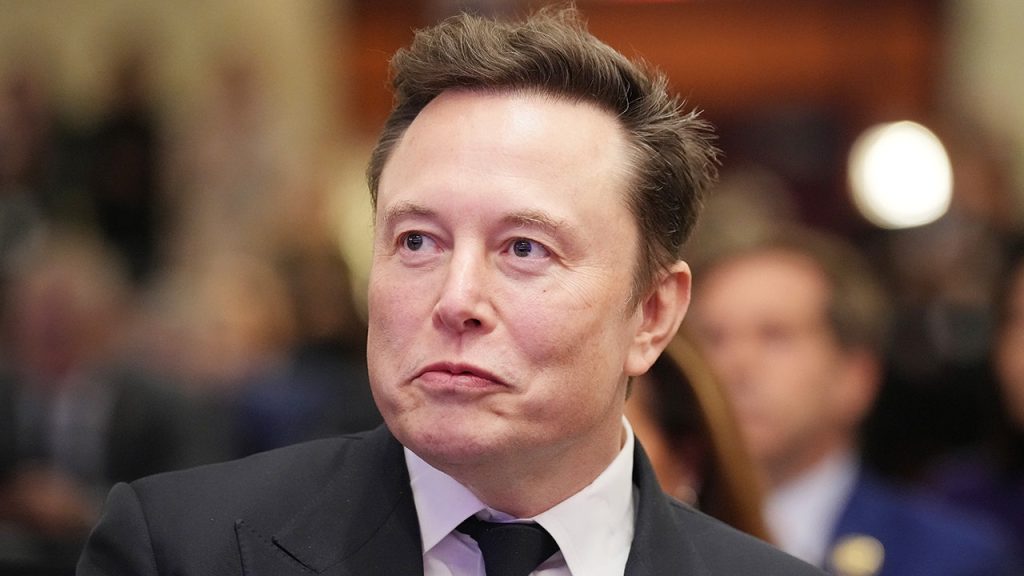Elon Musk, the visionary entrepreneur behind Tesla and SpaceX, has consistently advocated for a radical shift in the United States’ military strategy, emphasizing the paramount importance of autonomous weapons systems in future warfare. He argues that the era of manned fighter jets is drawing to a close, replaced by a new paradigm dominated by drones and hypersonic missiles. Musk’s perspective, though controversial, highlights the rapidly evolving landscape of modern conflict, where speed, agility, and unmanned platforms are becoming increasingly critical. He foresees a future battlefield where human-piloted aircraft are rendered obsolete, vulnerable to the swift and decisive attacks of drone swarms and hypersonic weapons. This shift, according to Musk, necessitates a significant investment in these advanced technologies to maintain a strategic advantage in the 21st century.
Central to Musk’s argument is the belief that the traditional reliance on manned aircraft, particularly expensive and complex platforms like the F-35 fighter jet, is a strategic misstep. He has been a vocal critic of the F-35 program, labeling it a “s— design” and citing its exorbitant cost and complex functionality as inherent flaws. Musk contends that the F-35’s attempt to be a “jack of all trades” has resulted in a platform that is ultimately a master of none. Furthermore, he views manned fighter jets as inherently vulnerable in a future dominated by drone warfare, essentially becoming death traps for pilots in the face of advanced autonomous systems. Instead, he champions a strategy focused on developing and deploying large quantities of long-range drones across various domains – air, surface water, and even underwater – as well as hypersonic missiles, which possess the speed and maneuverability to overcome traditional defense systems.
This perspective underscores a fundamental shift in military thinking, moving away from the emphasis on human pilots and towards autonomous systems. Musk’s vision emphasizes the need for adaptability and innovation in the face of evolving threats, suggesting that clinging to conventional military hardware like the F-35 is not only financially irresponsible but also strategically unsound. He believes that any manned vehicle in a future conflict will be swiftly neutralized by sophisticated drone technology, making the investment in human-piloted systems a wasteful expenditure. This argument, however, sparks debate about the ethical implications of relying heavily on autonomous weapons and the potential risks associated with removing human control from lethal decision-making processes.
Beyond his focus on military technology, Musk’s concerns extend to the broader issue of government spending and its potential ramifications for the nation’s future. He has expressed alarm over the escalating national debt, which he views as a path towards “de facto bankruptcy” if left unchecked. This concern aligns with his involvement in initiatives aimed at exposing government waste and advocating for more responsible fiscal policies. His appointment to the unofficial Department of Government Efficiency (DOGE) under the Trump administration reflects his commitment to addressing what he sees as a critical threat to the country’s economic stability. This broader perspective highlights Musk’s belief in the interconnectedness of economic strength and national security, arguing that fiscal responsibility is essential for maintaining a strong defense posture.
Musk’s critiques of government spending and his proposals for military modernization are deeply intertwined. He sees the exorbitant cost of programs like the F-35 as a symptom of wasteful spending that could be better allocated towards more effective and cost-efficient technologies like drones and hypersonic missiles. This argument raises questions about the prioritization of military spending and the potential trade-offs between investing in traditional platforms versus emerging technologies. Musk’s perspective challenges the established defense industry and its vested interests in maintaining the status quo, advocating for a more agile and adaptable approach to military procurement.
In essence, Elon Musk’s vision for the future of warfare is one of disruptive innovation and strategic adaptation. He envisions a battlefield dominated by autonomous systems, where drones and hypersonic missiles reign supreme, rendering traditional manned aircraft obsolete. This perspective challenges conventional military thinking and calls for a radical shift in resource allocation, prioritizing investment in these cutting-edge technologies. Furthermore, his concerns extend to the broader economic landscape, emphasizing the need for fiscal responsibility to ensure the nation’s long-term stability and its ability to maintain a strong defense posture in an increasingly complex and unpredictable world. His arguments, while controversial, spark a crucial conversation about the future of warfare and the strategic choices facing nations in the 21st century.










